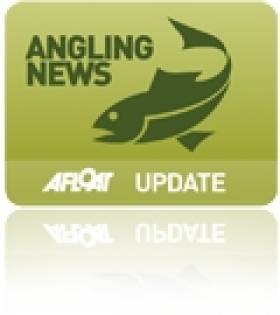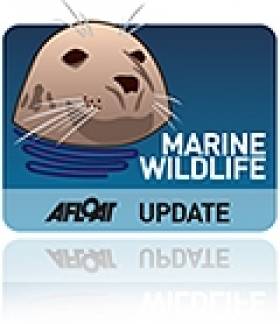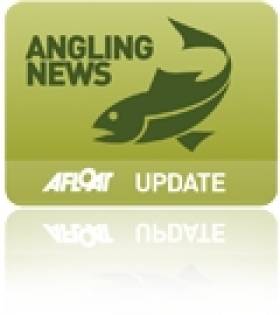Displaying items by tag: invasive
Fish Kill Confirmed On 5km Stretch Of Dublin’s River Tolka
#Angling - Inland Fisheries Ireland (IFI) has confirmed a fish kill on the River Tolka that was reported earlier this week.
Fisheries investigators found dead fish over a 5km stretch of the river in the Tolka Valley Park area, following the report on Tuesday 18 September.
According to IFI, a “significant source of polluting material has been identified” and samples were taken for analysis.
In the meantime “relevant parties are undertaking appropriate remedial action” as the investigation continues.
Also this week, Minister of State for inland fisheries Seán Kyne committed €300,000 for the removal of an invasive waterweed in Lough Corrib.
IFI will begin operations in 2019 to remove the aquatic plant Lagarosiphon major from the lough, after successful cutting and picking operations over the summer months this year.
In addition to these management operations, IFI commenced a research project last month which aims to establish the current distribution of L major in Lough Corrib.
New innovative methods are being trialled to survey the aquatic plant as part of this research. These include unmanned aerial drones, sub-aquatic remotely operated vehicles (ROVs) and modern remote sensing techniques.
Speaking as he visited IFI’s stand at the National Ploughing Championships, Minister Kyne also asked the fisheries body and his department to continue liaison with the National Parks and Wildlife Service (NPWS), who have responsibility for the legislation covering Alien Invasive Species (AIS).
Darndale Fishing Ponds Get New Lease of Life
#ANGLING - The Irish Times' angling columnist Derek Evans revisits the Darndale fishing ponds in north Dublin which have been given a new lease of life thanks to a community-led project to rid the angling spot of an invasive weed.
As reported last November on Afloat.ie, the public fishing ponds were "crying out for help" after an infestation of the invasive curly weed (Lagarosiphon major) which spread throughout the entire expanse of water, making casting virtually impossible.
But thanks to €3,000 in funding from the Heritage Council, the weed was smothered and killed off by jute matting (sackcloth) laid across the two ponds at the facility, restarting them to their former glory.
A 15-strong group including locals, anglers and members of Dublin City Council and Inland Fisheries Ireland spent three days in foul weather pulling out the weed and laying the jute.
The ponds, constructed in 1999 under the Urban Regeneration Programme, are home to good numbers of carp and rude, several of which "splashed and rose to fly-life and appeared to be enjoying their new surroundings" during Evans' visit.
It's hoped that the project will prove to be a success and lead to further works at public angling amenities elsewhere in Dublin, such as Bushy Park.
Trial Dredging to Help Rid Barrow of Invasive Asian Clam
#INLAND WATERWAYS - Trial dredging operations to curtail the spread of Asian clams at designated sites in the lower River Barrow are set to conclude today.
Inland Fisheries Ireland (IFI) employed the use of a a traditional cockle harvesting boat to physically remove the clams from the river bed, in an effort to explore methods of controlling or eradicating what it describes as an "ecosystem-changing invader" in other infested waters.
IFI scientists supervised the trials, using teams of divers to quantify the result of the dredging efforts.
The Asian clam (Corbicula fluminea) is "a most unwelcome addition to the fauna of the lower River Barrow". The bivalve mollusc is regarded as "one of the most notorious aquatic invasive species in the world".
First recorded in the river downstream of St Mullin’s in April 2010, subsequent IFI studies have revealed that the Asian clam is firmly established in the lower Barrow and in the River Nore downstream of Inistioge. Populations have also been recorded in the River Shannon and in Lough Derg.
In one section of the River Barrow the clam has achieved a "staggering" density of almost 10,000 per square metre.
Dr Joe Caffrey, senior scientist with IFI, said of the trial dregding: “It is imperative that every effort is made to control the expansion and spread of this highly adept invasive species.
"The results from these trials will inform future national management plans for this most unwelcome non-native species and will, at the very least, dramatically reduce the numbers of individuals in the test sites.
He added: "In tandem with these trials, research effort is being focused at producing other control methods that can be targeted as this species.”
Work Begins to Eliminate Sea Squirts in North Wales
#MARINE WILDLIFE - Work on exterminating sea squirts at a marina in north Wales has begun.
The £250,000 (€301,000) project by the Countryside Council for Wales involves attaching giant bags to the subsurface structures around the marina in Holyhead, which is hoped will stop the clean flow of water to the sea squirts, causing them to suffocate and die.
Marine biologist Rohan Holt, who is managing the project, said: “If we successfully eradicate the sea squirt, we will work hard to make sure that it does not recolonise.
"This will mean careful monitoring in Holyhead marina and other marinas and popular mooring areas throughout Wales to check that it hasn’t reappeared."
The sea creature threatens shellfish by spreading like a blanket across the seabed and other surfaces.
As previously reported on Afloat.ie, colonies of the invasive Japanese sea squirt are posing a throat to mussel and scallop bed in the Menai Strait between Anglesey and the mainland.
Boats from Ireland have been blamed for carrying the invasive pest into Holyhead.
The Daily Post has more on the story HERE.
Life Choked Out of North Dublin Fishing Pond
#ANGLING - The public fishing pond at Darndale is "crying out for help" after an infestation of curly weed, The Irish Times reports.
A public meeting to discuss the issue recently heard that the invasive plant has spread throughout the entire pond, making casting all but impossible.
“We have a catchment of some 3,000 youngsters and adults who are deprived of fishing in their locality," said Brian Conneely of Sphere 17 Youth Service. "It’s a sad state of affairs.”
The meeting also heard of a possible solution to the problem, with Dr Joe Caffrey of Inland Fisheries Ireland suggesting a covering of jute or sacking to kill off the weed and allow the growth of native plants - a plan that appears to be working in Lough Corrib.
Costing is the issue, however, with such a jute priced at around €5,000. Maryann Harris of Dublin City Council's parks division said she was exploring grants to fund the project.
The Irish Times has more on the story HERE.

































































